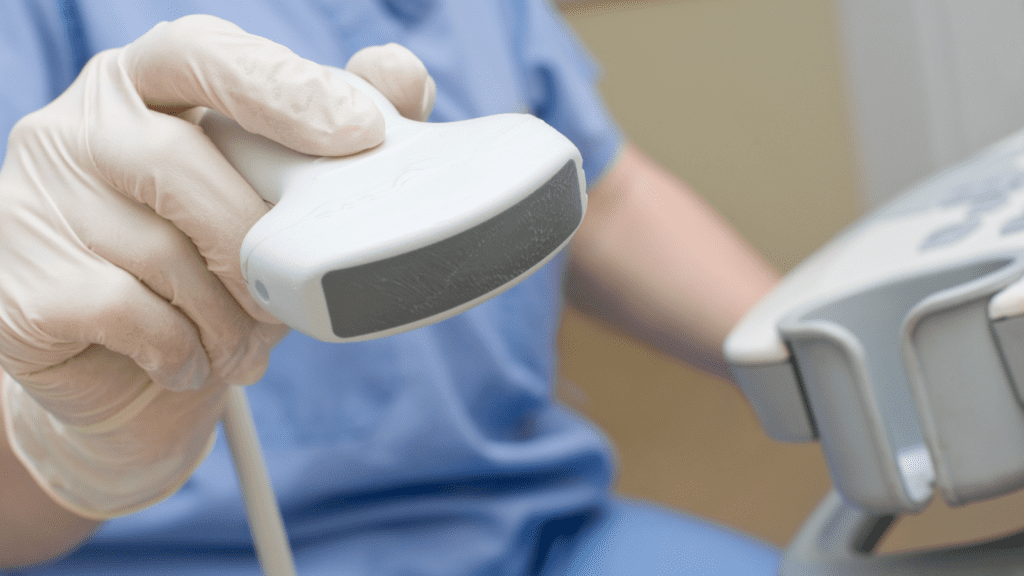Before an Abortion
Health and Safety Questions to Ask Your Abortion Provider
A limited obstetrical ultrasound can answer the most basic and essential questions in the early stages of your pregnancy. Along with determining if your pregnancy is even viable, an ultrasound will answer:
Is the pregnancy safely located in the uterus and not ectopic?
An ectopic pregnancy poses a severe threat to a woman’s health and safety. If left untreated, an ectopic pregnancy can cause lethal bleeding. A practical method of discovering an ectopic pregnancy is with an ultrasound. If your pregnancy is ectopic, you should not take abortion pills.
How far along is your pregnancy?
Even with a positive pregnancy test, it is possible to be wrong about how far along you are in your pregnancy. This is important when considering an abortion. Knowing how far along you are will determine what types of abortions are available to you and help you know what to expect from whatever option you choose. For example, the abortion pill is FDA-approved up until about 10 weeks gestation but can be less effective the closer you get to that 10-week mark.
Is there a heartbeat?
Approximately 25% of pregnancies end in a natural miscarriage, so determining viability is crucial to your decision-making process.
Have you been tested for a sexually transmitted infection before having an abortion?
An untreated STI can lead to an increased risk of pelvic inflammatory disease. If you have an untreated STI, an abortion procedure could put you at risk of pelvic inflammatory disease.
Have you been tested for the RH factor?
The Rhesus (Rh) factor is a protein in some red blood cells. Most people have this protein in their red blood cells, but some don’t. People who have this protein are Rh-positive. People who don’t carry the protein are Rh-negative. If a woman who is Rh-positive has a baby who is Rh-negative, her body will recognize that the baby’s red blood cells are not hers and will start to attack her baby’s red blood cells.
Getting tested for the Rh factor is essential, especially if this is your second or third pregnancy. If you need prenatal or medical care, contact MyChoice to learn about their referral assistance.
Do you have an IUD?
If you have an IUD and plan to have an abortion procedure, you will need to get your IUD removed before the abortion. If you plan on taking abortion pills, book an ultrasound to rule out an ectopic pregnancy and learn more about getting the IUD removed. An IUD increases the risk of an ectopic pregnancy, which can be life-threatening.
The Answers and Care You Deserve
Our registered nurses and trained advocates will educate you on each type of abortion as well as the potential for emotional, physical, and spiritual side effects so you know what to expect and how to take care of yourself.
It’s also vital that you remember that this choice is yours and yours alone. No one, no matter their role in your life, can force you to make a decision you don’t want to make. While we do not provide or refer for abortion services, we’re here for you.
Not every woman experiences long-lasting emotional or physical effects as a result of an abortion decision, but many do. So even if your initial first emotion is relief after an abortion, many women can struggle with their decision years later. Whether your abortion was yesterday or 20 years ago, we’re here for you.



